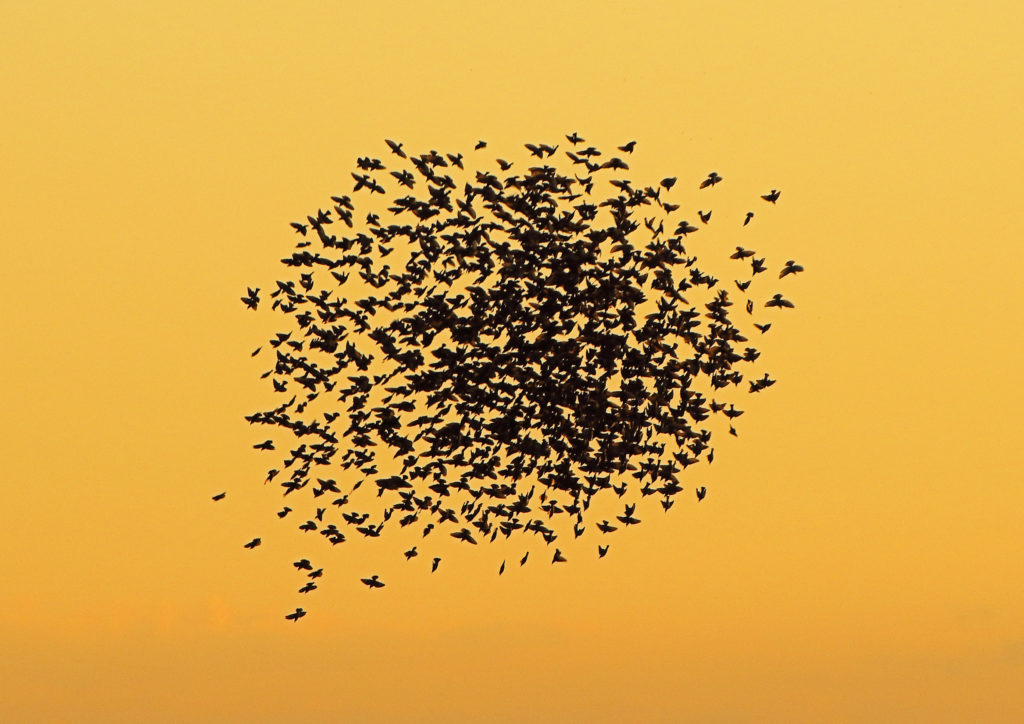First published in 1921, Freud’s Group Psychology and the Analysis of the Ego raises questions about a host of pertinent contemporary problems.
From the role of the leader today, tribalism, the triumph of modern masses, and what separates the individual from his or her subjectivity and lived history, this reading encourages listeners to think about this classic text in relation to our own era.
Chapter 1: Introduction
“In the individual’s mental life someone else is invariably involved, as a model, as an object, as a helper, as an opponent; and so from the very first individual psychology, in this extended but entirely justifiable sense of the words, is at the same time social psychology as well.”
Chapter 2: Le Bon’s Description of the Group Mind
“It is easy to prove how much the individual forming part of a group differs from the isolated individual, but it is less easy to discover the causes of this difference.”
Chapter 3: Other Accounts of Collective Mental Life
“On the one hand the group mind is capable of creative genius… as is shown above all by language itself, as well as by folk-song, folklore and the like…. The minds of lower intelligence bring down those of a higher order to their own level.”
Chapter 4: Suggestion and Libido
“I said to myself that [forcing someone to accept your words under hypnosis] was an evident injustice and an act of violence.”
Chapter 5: Two Artificial Groups: The Church and the Army
“Christ stands to the individual members of the group of believers in the relation of a kind elder brother; he is their substitute father.” · “Every captain is, as it were, the Commander-in-Chief and the father of his company.” · “It is to be noticed that in these two artificial groups each individual is bound by libidinal ties on the one hand to the leader (Christ, the Commander-in-Chief) and on the other hand to the other members of the group.”
Chapter 6: Further Problems and Lines of Work
“According to Schopenhauer’s famous simile of the freezing porcupines no one can tolerate a too intimate approach to his neighbour.”
Chapter 7: Identification
“The cannibal has a devouring affection for his enemies and only devours people of whom he is fond.”
Chapter 8: Being In Love and Hypnosis
“A man will show a sentimental enthusiasm for women whom he deeply respects, but he will only be potent with other women whom he despises.”
Chapter 9: The Herd Instinct
“If one cannot be the favourite oneself, at all events nobody else shall be the favourite.”
Chapter 10: The Group and the Primal Horde
“Just as primitive man survives potentially in every individual, so the primal horde may arise once more out of any random collection.”
Chapter 11: A Differentiating Grade in the Libido
“There is always a feeling of triumph when something in the ego coincides with the ego ideal. And the sense of guilt (as well as the sense of inferiority) can also be understood as an expression of tension between the ego and the ego ideal.”
Chapter 12: Postscript
“Neuroses are extraordinarily rich in content, for they embrace all possible relations between the ego and the object – both those in which the object is retained and others in which it is abandoned or erected inside the ego itself.”
Readers include:
Janet Haney, event coordinator, Laboratory for Lacanian Politics UK
Sophia Berouka, Laboratory for Lacanian Politics UK
Sue Blundell, playwright
Faisal Bokhammas, Birkbeck, University of London
Howard Britton, economist
Marie-Hélène Brousse, psychoanalyst, editor of The Lacanian Review
Bernard Burgoyne, psychoanalyst, mathematician
Vincent Dachy, psychoanalyst, scribbler and resolute amateur
Francine Danniau, psychoanalyst, writer, Belgium
Paul Dineen, actor
Philip Dravers, Chair, London Society NLS
Alasdair Duncan, autism support worker
Jeff Evans, statistician
Stephen Frosh, Birkbeck, University of London
Nancy Gillespie, Lacanian Compass, NYC
John Haney, writer, co-curator, PoetrySlabs
Earl Hopper, group analyst
Ven. Julian Hubbard, Director of Ministry for the Church of England
Michele Julien, Laboratory for Lacanian Politics UK
Joan Raphael-Leff, psychoanalyst, Anna Freud Centre
Roger Litten, Director, Laboratory for Lacanian Politics UK
Henrik Lynggaard, clinical psychologist, systemic psychotherapist
Max Maher, Essex University
Aino-Marjatta Mäki, Kingston University
Peggy Papada, clinical psychologist, practicing analyst, former dancer
Ivan Ward, Freud Museum
Scott Wilson, Kingston University
Bogdan Wolf, Laboratory for Lacanian Politics UK
Colin Wright, Nottingham University
Alejandro Sessa, accueillant, Le Courtil, Belgium
Anthony Stadlen, psychoanalyst, daseinsanalyst
Laura Tarsia, psychoanalyst
Patricia Tassara, psychoanalyst, Spain





Comments
Badass. ☕️〽️🧿.